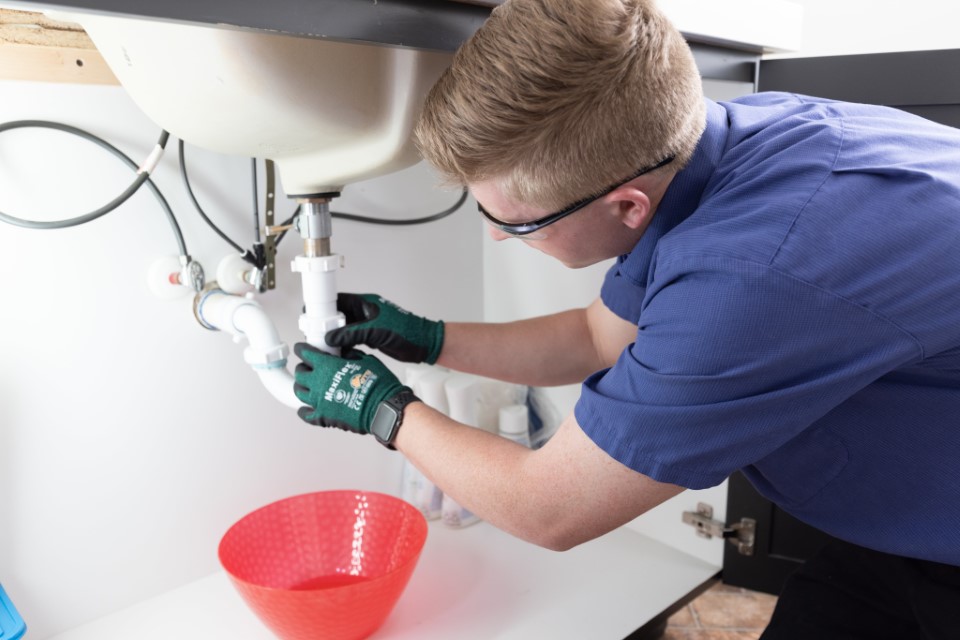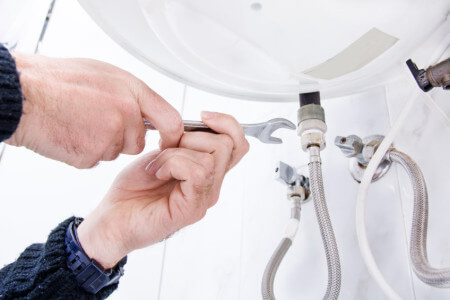Steps to Handle Emergency Plumbing Issues Before Professional Help Arrives
Steps to Handle Emergency Plumbing Issues Before Professional Help Arrives
Blog Article
We've come across this post involving What to Do While Waiting for an Emergency Plumber listed below on the internet and reckoned it made good sense to talk about it with you in this article.

Plumbing emergency situations can strike at any time, triggering stress and anxiety and potential damage to your home. Whether it's a ruptured pipe, a stopped up drain, or a leaking tap, understanding just how to manage the scenario up until an expert plumber arrives can conserve you from further problems. This write-up offers vital emergency situation plumbing ideas to help you alleviate damages and regain control throughout a pipes crisis.
Shut off the Water
The very first step in any plumbing emergency situation is to shut off the supply of water. For local issues, such as a leaking tap or commode, turn off the valve near the component. When it comes to a major leak or burst pipeline, situate your home's main water shut-off valve and turn it off promptly. Knowing the location of these valves in advance can conserve valuable time during an emergency situation.
Address Little Leakages with Short-lived Fixes
Small leaks can swiftly come to be substantial troubles if left uncontrolled. Make use of these short-lived solutions till specialist help arrives:
While these fixes aren't permanent, they can assist lessen water loss and damages.
Unclog Drains Pipes Securely
A clogged drain can be an aggravating and messy problem. Right here's exactly how to tackle it:
If these methods do not work, prevent using extreme pressure, as it might get worse the clog.
Handle Overflowing Toilets
An overflowing commode can create instant chaos. Below's what you must do:
Shut down Your Water Heater
In particular emergencies, such as a ruptured pipe, it's important to shut off your hot water heater. This avoids getting too hot or damage to the device when water stops streaming. Turn off the power supply to the hot water heater (electric or gas) and let it cool to prevent possible risks.
Momentarily Stop a Ruptured Pipeline
A burst pipeline can lead to considerable water damage in minutes. To minimize the issue:
Call an expert plumbing professional quickly to address the problem permanently.
Handle Frozen Pipes Carefully
In chillier environments, frozen pipes are a typical emergency situation. If you suspect a frozen pipe:
Protect against Further Damage
Taking quick action to reduce damage can save you time and money in the long run. Here's exactly how:
. Have an Emergency Plumbing Kit
Prepare a fundamental plumbing emergency kit to take care of small issues successfully. Your kit should consist of:
Having these devices handy can make a significant distinction in your capacity to handle emergency situations.
Know When to Call an Expert.
While quick fixes can help briefly, certain plumbing issues call for immediate specialist attention. Call a plumbing professional if:.
Promptly speaking to a professional makes sure the issue is solved correctly and stops more problems.
Verdict.
Plumbing emergencies can be frustrating, but with the ideal expertise and tools, you can handle the circumstance properly until assistance gets here. By turning off the water system, resolving small leaks, and making use of short-term solutions, you can lessen damages and keep your home safe. Bear in mind, these tips are momentary solutions; constantly get in touch with a certified plumbing professional to manage the root cause of the trouble. Preparation and quick reasoning are your best allies in any type of pipes emergency.
8 Helpful Tips for Managing Plumbing Emergencies at Home
If your plumbing system hasn’t failed once, wait for it because almost everyone has a story to tell. Sometimes, it could be simple emergencies such as a leaking pipe, a blocked cistern, or even a big burst pipe. In situations like this, you need to have some handy tips to save you some money and from possible damages.
Take care of minor issues early.
Sometimes, you could have avoided an emergency by taking proactive measures while it was still early. Some major plumbing emergencies can be a result of an ignored minor issue. We recommend that you have items like plumbing tapes and other related items. A plumbing tape can allow you to manage minor leaks before the plumber arrives.
Cut off the water supply.
This tip is essential in almost any type of leakage problem. For problems like minor leakages in the toilet or kitchen, turn off the supply that takes water to the affected pipes. If the leakage is a major pipe, you must shut off the supply valve to the entire building. This will help you avoid flooding your home and neighbors if you share a flat.
Know your plumbing system
Folks typically move into a new apartment without understanding the water supply around the building. This can prove disastrous if a water emergency arises and the plumber is far away. The previous tip will prove useless if you don’t practice this one. More importantly, know where your water shut-off valve is located – you’ll need that knowledge to prevent potential home floods.
Have some common handy tools
There are lots of plumbing emergencies that you can handle without hiring a plumber. That’s why you must keep some tools available always. Some tools that you can use to fix simple plumbing emergencies easily include plumbing tapes, screwdrivers, thread seal tapes, plungers, pliers, tape measures, and rubber gloves.
Insulate your pipes from cold
You’ll save yourself from many plumbing expenses if you protect your water pipes from the cold. This is because of the harmful effects that cold weather can have on your pipes. During winter, your pipes can burst from being overly expected to freezing temperatures. So, make sure insulators are there to keep the pipes working correctly.
Avoid practices that will clog your toilet.
Many people indulge in practices that can damage the plumbing system of the entire building. One of these is when they use their toilet to dispose-off garbage. They flush all kinds of things, such as paper towels, bandages, hairs, female sanitary products, etc., down the toilet. This will block your toilet in the long run, incurring unnecessary expenditures. Dump such waste in the trash instead.
Check your dials regularly.
Sometimes, there could be leakages in your home without noticing them in time. So, constantly monitor your water meter dial. If the dial is reading when there is nobody using water, this is an indicator that there is leaking. Check for leaks immediately. Call a plumber as soon as possible if you can’t find any.
https://www.constructionplacements.com/8-helpful-tips-for-managing-plumbing-emergencies-at-home/

I hope you enjoyed reading our piece about Expert Tips for Emergency Plumbing Repairs. Thanks for spending some time to read through our post. Those who liked our article plz do not forget to share it. We value reading our article about What to Do While Waiting for an Emergency Plumber.
Or Book Technician Here Report this page